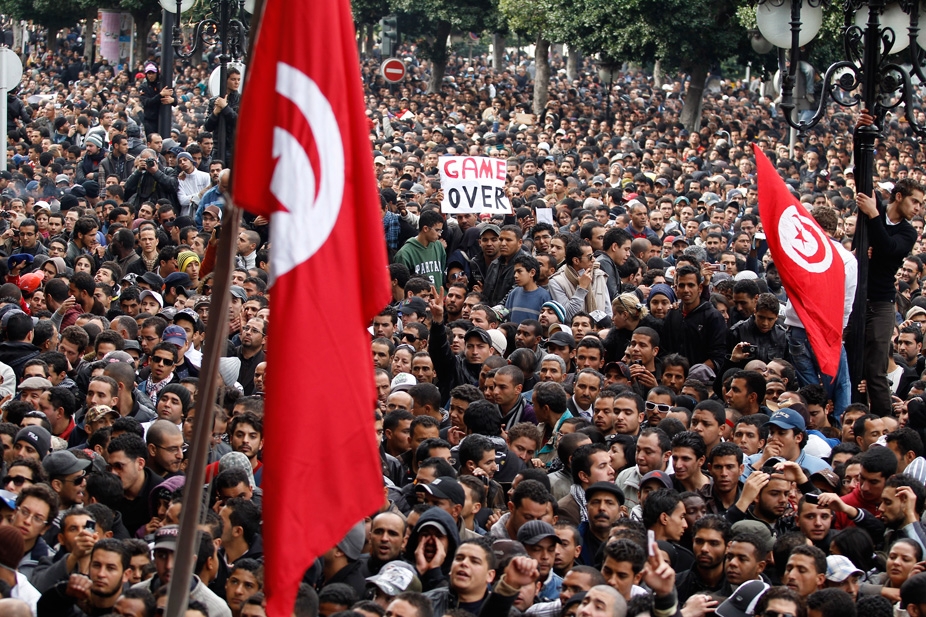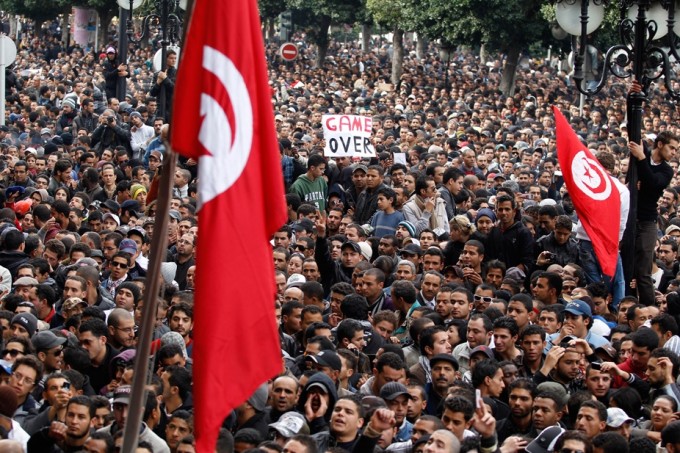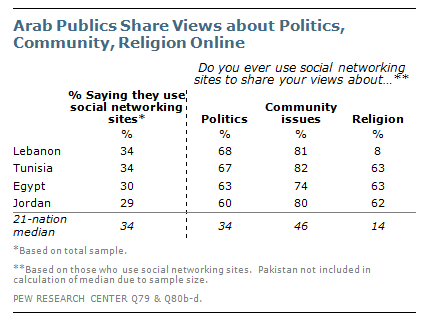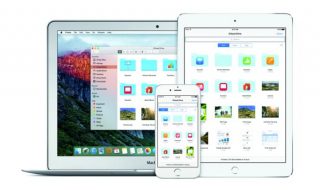
Social media has revolutionized the way we communicate, consume news, and interact with the world around us. It has also had a profound impact on politics. In recent years, we have seen social media used to mobilize people around political causes, to bring down governments, and to spread misinformation.
So, are we witnessing the start of a global revolution? It is still too early to say for sure. However, one thing is clear: social media is a powerful tool that can be used for good or for evil. It is up to us to use it responsibly and to ensure that it is used for the benefit of humanity.
In this article, we will explore the impact of social media on politics. We will look at how social media has been used to mobilize people around political causes, to bring down governments, and to spread misinformation. We will also discuss the challenges and opportunities that social media presents for democracy.
We believe that social media has the potential to be a force for good in the world. It can be used to connect people, to share ideas, and to build movements for change. However, it is important to be aware of the risks associated with social media, such as the spread of misinformation and the erosion of trust in institutions.
We hope that this article will help you to understand the impact of social media on politics and to use it responsibly.
Social Media & Politics

Are We Witnessing the Start of a Global Revolution?
Social media has had a profound impact on politics in recent years. It has changed the way that candidates campaign, the way that voters get their news, and the way that political movements are organized.
One of the most significant ways that social media has changed politics is by giving candidates a direct line to their constituents. In the past, candidates had to rely on traditional media outlets, such as newspapers, television, and radio, to get their message out to voters. However, social media allows candidates to bypass these traditional media outlets and communicate directly with voters on their own terms. This has given candidates a much greater degree of control over their message and has made it easier for them to connect with voters on a personal level.
Social media has also changed the way that voters get their news. In the past, voters got their news from a variety of sources, including newspapers, television, radio, and magazines. However, social media has become a major source of news for many voters. This is because social media platforms, such as Facebook and Twitter, allow users to curate their own news feeds. This means that voters can choose to see only the news that they want to see, which can lead to echo chambers and filter bubbles.
Echo chambers occur when people only see news that confirms their existing beliefs. This can make it difficult for people to understand different perspectives and can lead to polarization. Filter bubbles occur when people are only exposed to news that is similar to the news that they have already seen. This can make it difficult for people to get a well-rounded view of the news and can lead to them being misinformed.
Social media has also made it easier for political movements to organize and mobilize. In the past, political movements had to rely on traditional methods of communication, such as door-to-door canvassing and phone calls, to reach voters. However, social media allows political movements to reach a much larger audience with a much smaller investment of time and resources. This has made it easier for political movements to build support and to take action.
Social media has had a profound impact on politics. It has changed the way that candidates campaign, the way that voters get their news, and the way that political movements are organized. These changes have both positive and negative implications. On the positive side, social media has made it easier for candidates to connect with voters on a personal level and to build support for their campaigns. On the negative side, social media has led to echo chambers and filter bubbles, which can make it difficult for people to understand different perspectives. Overall, social media has had a significant impact on politics, and its effects are still unfolding.
The role which social networking websites played in organizing the demonstrations that helped out President Hosni Mubarak from power, ending his 30-year old rule was a unique incident. This particular incident is unique in many aspects. For starters, this could very well be the first (recorded and public) instance of a person being named after a social network, instead of it being the other way around (remember Orkut?). More importantly, it reverberates the elevated status attributed to the all-pervasive social media during the recent regime-ousting political campaigns erupting in North Africa and Middle East.
Since the last 2 years, social media websites like Facebook, Twitter, and YouTube have been extensively used to coordinate demonstrations and update the global audience about the situation on the ground through tweets, videos, and images of the protests in the region. In January 2011, Tunisians took to the streets to protest widespread unemployment, government corruption and the lack of opportunities. These demonstrations came in the wake of the self-immolation of 26-year old Mohamed Bouazizi on December 17, 2010, after his informal vegetable stall and sole means of livelihood was shuttered by the police in the southern Tunisian town of Sidi Bouzid. An unemployed college graduate, Bouazizi did not die a quick death; he suffered from his extensive burns till January 4, 2011.
According to Al Jazeera, Bouazizi was not the first Tunisian to set himself alight as an act of police protest. However, what set the incident apart was the determination of the people of Sidi Bouzid to reach out and get noticed. On December 17, two relatives of Bouazizi posted a video of a peaceful protest led by the young man’s mother outside the municipality building. The video was aired on Al Jazeera after its New Media team picked up the footage via Facebook. In contrast, apart from a solid core of activists, most Tunisians did not have the courage to “report” or “like” videos on Facebook – that’s why trend of hiring a proper social media agency grown up for the purpose of spreading message and taking a much solid protest against government.
The Social Media Revolution

Developing nations adopting social media quickly
The role of social media in mobilizing the people (and subsequently falling victim to internet censorship) was once again brought into focus during the mass protests in Egypt, in January 2011. Motivated by Tunisia’s success in driving president Ben Ali from power, a protest against unemployment, government corruption, poverty and the rule of president Hosni Mubarak was planned on January 25, 2011. The message was put out on Facebook pages such as the ‘April 6 Youth Movement’ as well as circulated through tweets. As a result, Egypt’s political revolution grew and persisted. Eventually, amidst massive international pressure and widespread protests in the country, President Mubarak announced his resignation on February 11, 2011 – making the end of his three decades in power and the culmination of the 18 days of public demonstrations in the country.
As protests spread from Tunisia and Egypt to Bahrain, Yemen, Algeria and Libya, information and communications technologies (ICTs) helping protesters aggregate, and disseminate news and updates, have turned into a source of contention for media analysts and Web 2.0 advocates. Attributing full credit for the recent political revolutions to the technologies used to propagate the message, many social media enthusiasts are eager to classify these people-led mass protests against authoritarian regimes as “Twitter Revolution” or Facebook Revolution” or even “Revolution 2.0”. Opposing these beliefs are those who acknowledge social media tools in helping spread message, yet maintain that tools are only as effective as the way people use them. For them, revolutions happen when the bulk of the population propelled by grievances, ideology, outrage and courage, rises up against a government.
It is said that the ‘strong will of people is needed along with technology to make revolutions’. In this case, the collective will and effort of the people is needed to revolutionize the network and make it resilient to state censorship and outages, and to ensure that the conversations continue unhindered online.




